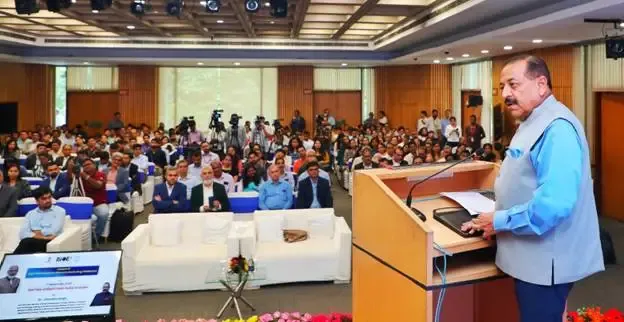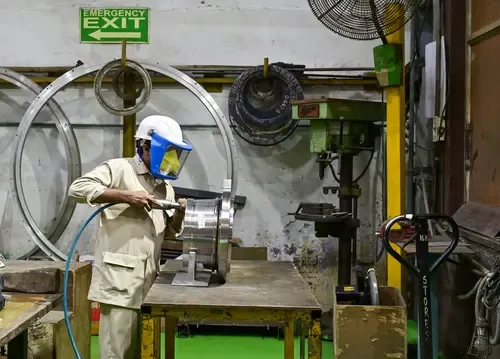Is India Leading the Global Biotechnology Sector with 21 Bio-Companies?

Synopsis
Key Takeaways
- India has 21 out of 121 global bio-companies.
- Bioeconomy aims to reach $300 billion.
- Biotech startups have surged to over 13,000.
- High-Performance Biomanufacturing Platforms launched.
- Focus on self-reliance in biotechnology.
New Delhi, Sep 1 (NationPress) In a significant move to establish India as a global hub for biotechnology-driven growth, Union Minister of State (Independent Charge) for Science and Technology Dr. Jitendra Singh announced on Monday that the nation now represents 21 out of the 121 bio-companies worldwide.
During an interactive session hosted by the Department of Biotechnology (DBT) and BIRAC with industry stakeholders at the India International Centre, Singh remarked: “This achievement is monumental for a nation that once trailed behind; today, we are at the forefront of institutionalizing biomanufacturing policy.”
At the meeting, Singh also unveiled the High-Performance Biomanufacturing Platforms under the BioE3 (Biotechnology for Economy, Environment, and Employment) Policy.
The newly introduced platforms unite 21 advanced bio-enabler facilities across the nation.
These facilities will provide shared infrastructure for startups, small and medium enterprises, industries, and academic institutions to test, scale, and commercialize technologies. The work encompasses microbial biomanufacturing, smart proteins, sustainable agriculture, functional foods, carbon capture, marine biotechnology, and next-generation cell and gene therapies.
Emphasizing India's recent advancements, the Minister highlighted that the country's bioeconomy has escalated from approximately $10 billion to nearly $100 billion today, aiming for a target of $300 billion in the forthcoming years.
He also pointed out the growth of biotech startups, which have surged from just 50 a decade ago to over 13,000 today, supported by nearly 100 incubators under BIRAC.
“We are leading the way in institutionalizing biomanufacturing policy,” Singh added.
The Minister affirmed that the government's emphasis on biomanufacturing aligns with a broader vision to make India self-sufficient in critical sectors and lessen reliance on imports.
“Bio-enablers are the cornerstone of India's next wave of biotechnology-led growth. By offering top-tier platforms, tools, and infrastructure, bio-enablers equip our scientists, startups, and industries to transition swiftly from ideas to innovations, and from laboratories to markets,” he said.










